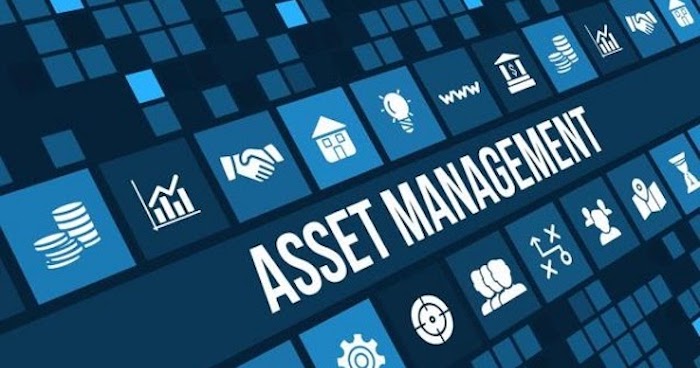Choosing the right asset management program and personnel to handle your finances can seem daunting. After all, they will play a crucial role in managing your wealth and securing your financial future, particularly during retirement. However, finding a trustworthy and competent asset manager is essential for long-term financial success. In this article, we will explore tips to help you find a good asset management program that aligns with your goals and safeguards your financial well-being.
Conduct Extensive Research
When searching for an asset management program, don’t settle for the first option that comes your way. Take the time to research and compare multiple programs. Gather as much information as possible, including their track record, performance, and fees. This allows you to make an informed decision without feeling rushed or pressured.
Treat the process of finding a good asset management program as you would when shopping for a doctor to treat a terminal illness. Your financial future depends on this decision, so it’s crucial to be thorough and diligent.
Seek Recommendations and Referrals
A valuable approach to finding a good asset management program is to seek recommendations and referrals from trusted sources. Reach out to friends, family, and colleagues who have had positive experiences with asset managers. Inquire about their satisfaction with the program, the manager’s expertise, and their overall investment performance.
Additionally, consider seeking referrals from successful individuals in business or those whose financial portfolios you admire. Their asset managers are likely to be reputable and experienced in delivering favorable results.
Once you obtain contact information, connect with the recommended asset managers. Ask about their accomplishments, track record, and years of experience working with the referrer. Schedule face-to-face meetings to assess their personality, professionalism, and compatibility with your investment goals. Repeat this process with multiple referrals before making a final decision.
Maintain Active Involvement
While it’s important to trust your chosen asset manager, it is equally vital to maintain an active role in the management of your assets. Stay informed about the progress and performance of your investments. Regularly review reports, statements, and performance updates provided by your asset manager. Educate yourself on investment strategies and financial concepts to better understand the decisions being made on your behalf.
Maintaining an active involvement ensures that you have a comprehensive understanding of your financial situation and allows you to make informed decisions alongside your asset manager.
Conclusion
Finding the right asset management program requires diligent research, seeking recommendations, and maintaining active involvement. Take the time to explore multiple options, compare their track records, and evaluate the expertise of recommended asset managers. Remember, it’s essential to have trust but also to stay informed and involved in the management of your assets. By following these guidelines, you can secure a good asset management program that aligns with your goals and sets the stage for a financially secure future.
FAQs
Q: Why is finding a good asset management program important?
A: Finding a good asset management program is crucial because it directly impacts the management and growth of your wealth. A competent asset manager can help you navigate the complexities of the financial markets, optimize your investment portfolio, and potentially increase your returns. Conversely, a poor choice in asset management can lead to suboptimal results and potentially put your financial future at risk.
Q: How can I conduct thorough research on asset management programs?
A: Conducting thorough research involves gathering information about different asset management programs. Start by exploring their track records, performance histories, and client reviews. Evaluate their investment strategies, areas of expertise, and fee structures. Consider factors such as their experience, qualifications, and the stability of the firm they represent. By gathering comprehensive information, you can make an informed decision about the program that best aligns with your investment goals.
Q: What are the benefits of seeking recommendations and referrals?
A: Seeking recommendations and referrals from trusted sources can provide valuable insights and firsthand experiences. People who have had positive interactions with asset managers can offer valuable feedback on the effectiveness of the program, the manager’s expertise, and their overall satisfaction. Recommendations from successful individuals in business or those with admirable financial portfolios can lead to reliable and reputable asset management options.
Q: How can I assess the compatibility of an asset manager with my goals?
A: To assess the compatibility of an asset manager with your goals, it is important to schedule face-to-face meetings and ask relevant questions. During these meetings, discuss your investment objectives, risk tolerance, and time horizon. Gauge the asset manager’s ability to understand your unique needs and their willingness to tailor investment strategies accordingly. Additionally, assess their communication style, professionalism, and transparency. A good asset manager should prioritize a collaborative approach that aligns with your goals.
Q: What is the significance of maintaining active involvement in asset management?
A: Active involvement in asset management ensures that you remain informed and engaged in the decision-making process. By staying up to date with your investment portfolio’s performance, you can assess whether the asset manager’s strategies align with your goals. Active involvement also enables you to have meaningful discussions with your asset manager, ask relevant questions, and make informed decisions based on your evolving financial situation.
Q: How often should I review my investment portfolio with my asset manager?
A: The frequency of portfolio reviews may vary depending on your specific circumstances and investment strategy. However, as a general guideline, it is recommended to review your investment portfolio at least annually. This allows you to assess its performance, review your financial goals, and discuss any changes in your circumstances or risk tolerance. Additionally, major life events or shifts in the financial markets may warrant more frequent reviews and discussions with your asset manager.
Q: Can I switch asset management programs if I am not satisfied?
A: Yes, you have the option to switch asset management programs if you are not satisfied with your current provider. However, it is important to carefully evaluate the reasons for your dissatisfaction and identify the specific areas that need improvement. Before making a switch, conduct thorough research on alternative programs, seek recommendations, and schedule meetings with potential new asset managers. Ensure that the new program aligns with your goals and offers the expertise and service level you require.




